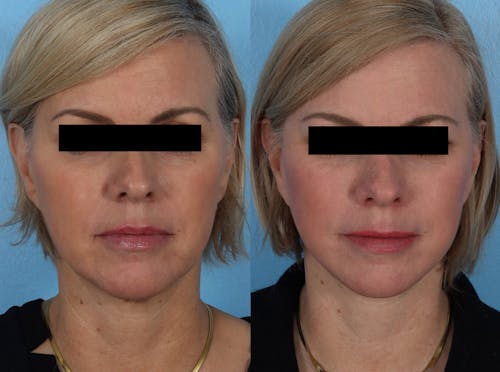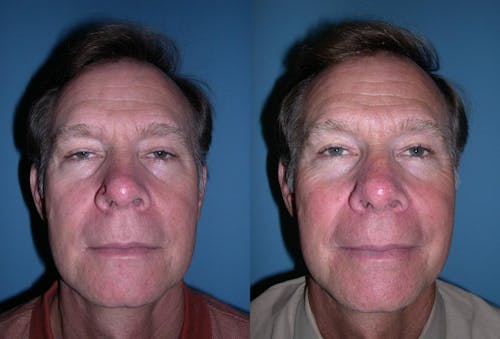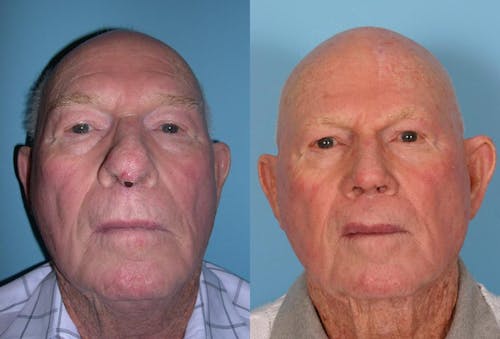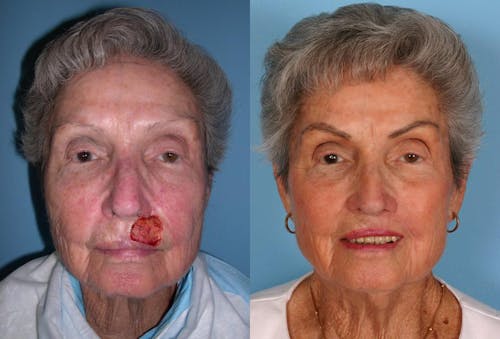Surgeons at the Buckingham Center for Facial Plastic Surgery offer skin cancer solutions for patients in Austin, TX and the surrounding areas.
What Is Skin Cancer Reconstruction?
Our surgeons are experts in treating skin cancer, in most cases teaming up with a Mohs surgeon for the excision and then perform the reconstruction procedure the same day. Our surgeons strongly believe in using similar tissue for the reconstruction. Therefore, they use the most innovative local and regional tissue flap techniques to restore soft tissue defects. Each surgeon’s goal is to provide the patient with a result that closely resembles their pre-injury cosmetic and functional state.
Additionally, our surgeons coordinate the care of melanoma patients, working closely with surgical and medical oncologists to perform the latest in sentinel lymph node mapping and adjuvant treatment modalities.













